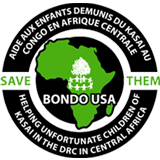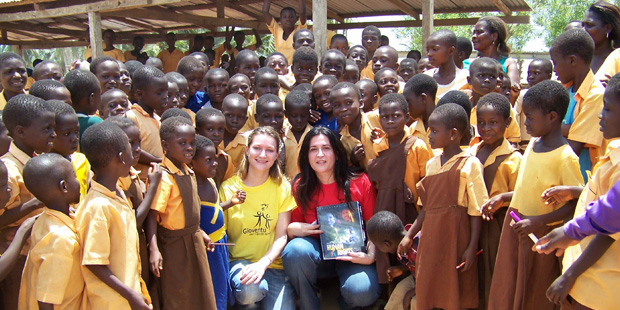Our compatriot killed last Saturday is the sixth case identified by the Congolese Community of Montreal so far. In each, the COCOM trying to do its part by educating the entire community. Unfortunately, many of us are those who think that these problems would happen to us. You will find below a message dated April 2010, when I rang the alarm bell. Just seven parents were involved in the process. Today, I still call this a recovery towards both parents to a meeting takes place with all the leaders of churches, associations and organizations in order to present an action plan to be a working tool for our community. The date will be given later.
What are our duties to our children and parents?
Parents are required to several duties towards their children. They must protect the child’s safety, health and morals, they must also provide education and enable its development with due respect to his person.
They should take it personally and / or materially support the lives and education of the child. Thus, they are required by those duties independently of the exercise of parental authority (they are required even in cases of separation or withdrawal of the right to exercise parental authority).
Parent power
You are a role model
* Parents are the most important models of behavior and they have a huge influence on their children. Your child will take more of your * values and behaviors, as you have adopted those of your parents. Your child holds the way you deal with problems, express feelings and celebrate special events.
What do you do when you or a member of your family make a mistake? You bring yourself, are you trying to blame someone or something? Or do you assess the situation calmly and clear lessons to avoid the problem occurs again? If you carry, go to your excuses for you behaved so unacceptable?
You can not avoid being a model for them. Your child will see your example, whether positive or negative, a pattern of behavior. Families are protective factors * and * risk factors that have an impact on problem drug use among young people. Your behavior has a strong influence on the decision for your child to eat or not drugs.
To err is human
Remember that the ideal family does not exist. All families have problems and make mistakes: the young and the parents. But what matters is how you and your child react. Admit a mistake and apologize is a way to demonstrate to the child how to behave.
You should always be involved in his life, regardless of age. Be it early, even if you feel that you do not listen!
Ways for parents to influence their children
There are many things parents can do to help their child grow and develop in a positive way and not use drugs. Research in the field of positive youth development confirms the well received if the parents, the school and the community strive to promote healthy growth and development of children, it naturally prevent all sorts of problems occur idea (including drug use). Enhance the strengths of the child (or the assets growth *) is a crucial point.
Family Voice a list of ways for parents to develop assets in their children, the study adapted list of “Search Institute”
· Provide support to all family members
· Communicate in a positive way between them
· Interest in the school life of the child
· Set limits, be a model and have high expectations for behavior
· Encourage the efficient use of time, for example, participate in recreational and creative activities or help in the community and at home
· Be a model for learning
· Promote positive values, including accountability and control
· Help develop social skills such as planning, decision making and resistance
· Help the child develop a sense of personal power and purpose, self-esteem and a positive vision of the future.
For more information on the development of assets, visit: www.search-Institute.org
To understand how to prevent alcohol and drug use, it is also important to understand the relationship between risk factors * and protective factors *. It is well supported by many years of research concepts. Risk factors are life events, experiences or conditions that are associated with an increase in problem behaviors such as drug use. Protective factors protect against problem behaviors include many assets and growth described above.
As parents, the most important is to pay attention to the strengths of the child and protective factors (or asset growth). At the same time, it is useful to understand that children have different degrees of vulnerability to problems based on risk factors related to their personality, genetics, education, family, peer group, school, community, culture, etc.. The more risk factors, the more important it is for parents to build strong influences of protection around their child.
The following table shows the risk factors and protective factors known to children and young people at different levels: individual factors such as personal resilience, factors family and peers, school environment and factors in the community.
Risk factors and protective factors
Risk Factors: There is not necessarily a cause and effect, but these qualities and influences often exist in the lives of young people who use drugs.
Protective Factors: There are events, qualities and influences, researchers, help prevent drug use among young people.
risk factors
Protective factors
Personal factors
· Have a difficult temperament complicates relationships with other
· Suffer from mental illnesses such as depression or anxiety
· Have positive expectations of the drug with easy access
· Begin to consume at a young age
· Have a positive easygoing, be sociable, optimistic and able to handle problems
· Have a strong self-esteem and good social skills
· Feel close to the school, family and support adults in the community
· Adversely expectations for drugs
· Delay consumption to future years, perhaps forever
Family
· Have a family that uses drugs or has a relatively permissive attitude to drugs
· Live in a stressful home or without support
· Have parents without clear rules or expectations, poor supervision and discipline and fuzzy support
· Have a family that discusses and demonstrates responsible for drug (either ban smoking at home, drink responsibly, do not consume illegal drugs, as well as store and consume prescription drugs correctly)
· Have parents who seek to build close relationships with their children, to express clear expectations and enforce strict discipline
Pairs
Having friends:
· Use drugs and encourage drug
· Have a lot of time or money and do not participate in positive social activities
· Violate the law
Having friends:
· Do not use drugs and do not encourage drug use
· Participate in positive academic and social activities such as sports, music, art
· Influence favorably
decisions
School
· Underachievement
· Negative climate, unruly and dangerous
· Low expectations of teachers
· Lack of clear policies on drug use
· Lack of commitment to school
· Withdrawn or aggressive behavior in the classroom
· Caring and welcoming environment
· High expectations
· Standards and clear rules on behavior
· Responsible participation in tasks and decisions
Community
· Standards that promote or allow drug
· Poverty, crime and isolation (often) high
· Transition / high mobility
· Lack of traditions and cultural history
· Caring and welcoming community
· High expectations for young
· Awareness of the media (to counter spam)
· Religious or spiritual activities
· Community activities
Much research has been conducted in psychology to understand why some adolescents, against all odds (risk factors surbondaient in their lives), can overcome all challenges and become balanced and happy adults. The results clearly demonstrated the crucial role of protective factors in the lives of these young people.
Explain to your child that marked your life and why.
Tell him about your family members or friends who have shown courage, humor and determination in their lives.
Ask your child who he admires and why.
Parents should be involved and informed. Look for ways to connect with your child to support, to encourage and tell him what is in your eyes. Be always present. Do things as a family: preparing a meal, talk about a TV show, play sports. This in order to spend time together and get closer to your child. Sometimes lack the time, but he spent with your child is precious.
Use of school and community resources
Supports and role models, young people also look elsewhere. For example: brothers and sisters, friends, relatives, neighbors, teachers, other adults in the community, such as sports coaches, club officials. Personalities on television, actors, musicians and film stars can be role models. These people help to support, guide and encourage your child in a positive way. The relationships that our child tied with adults in the community exert a great influence on him later in life.







